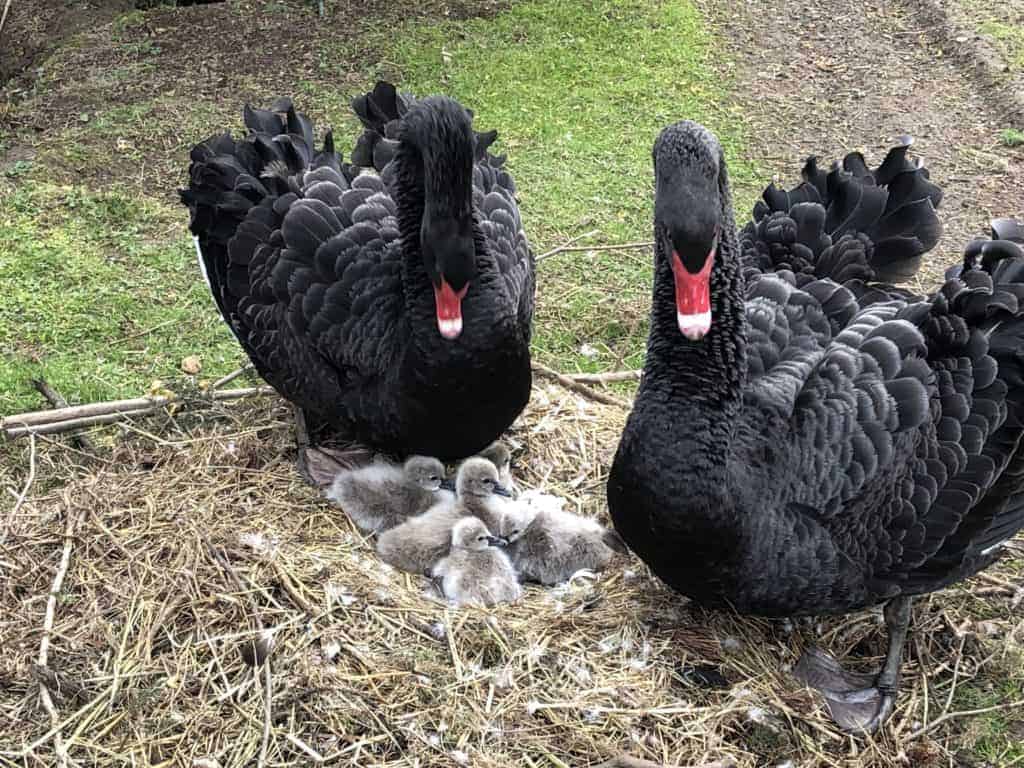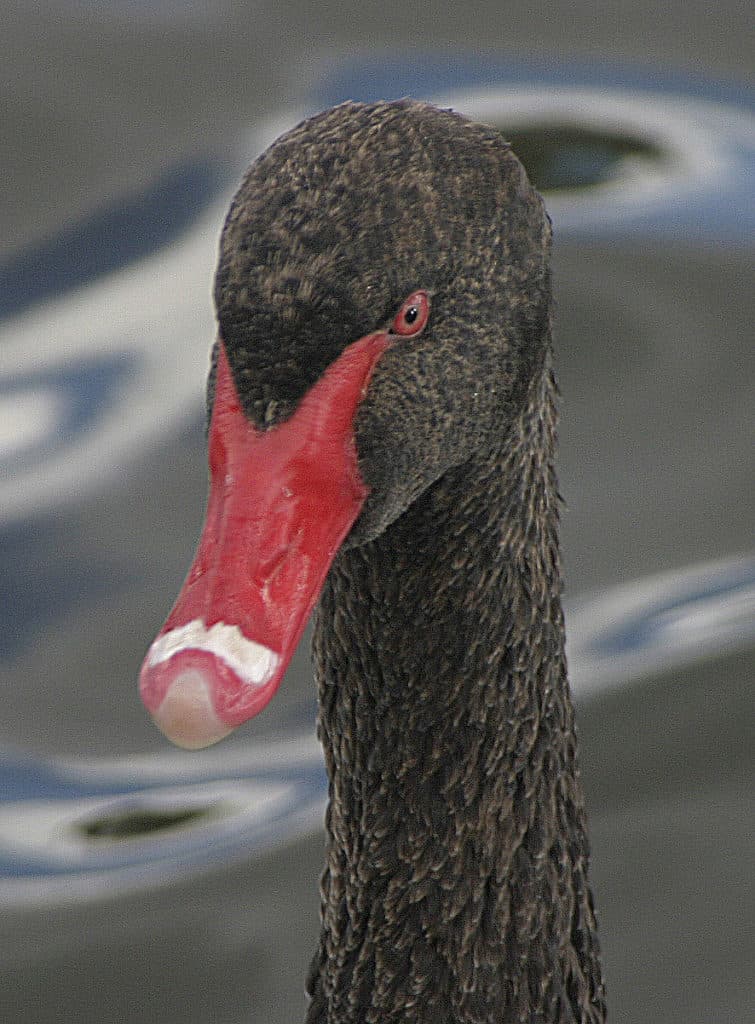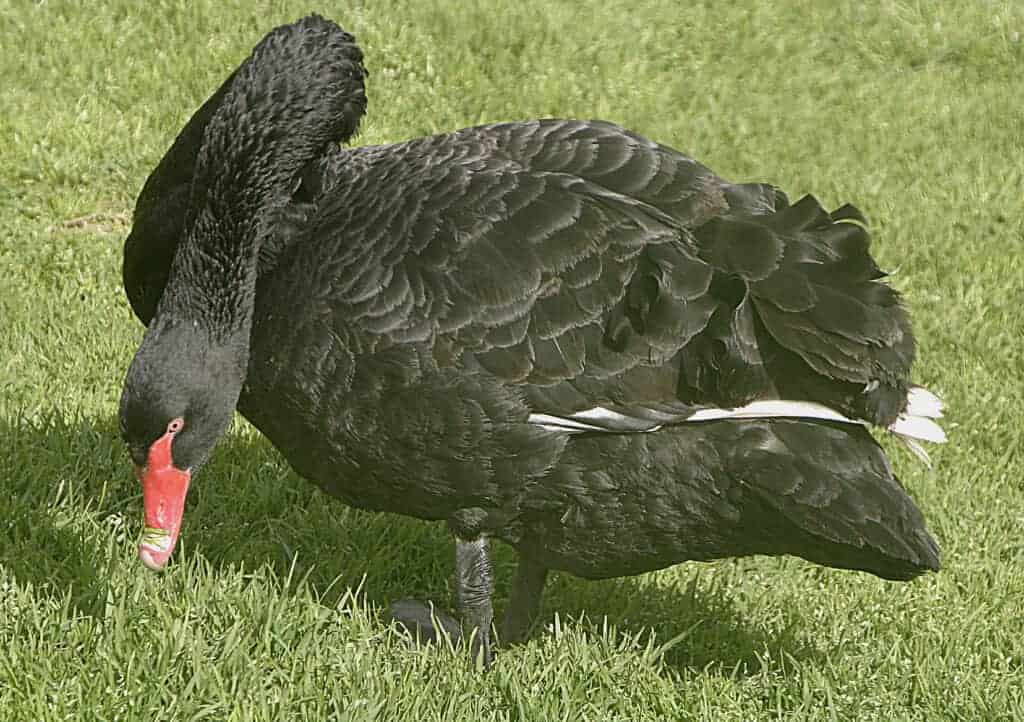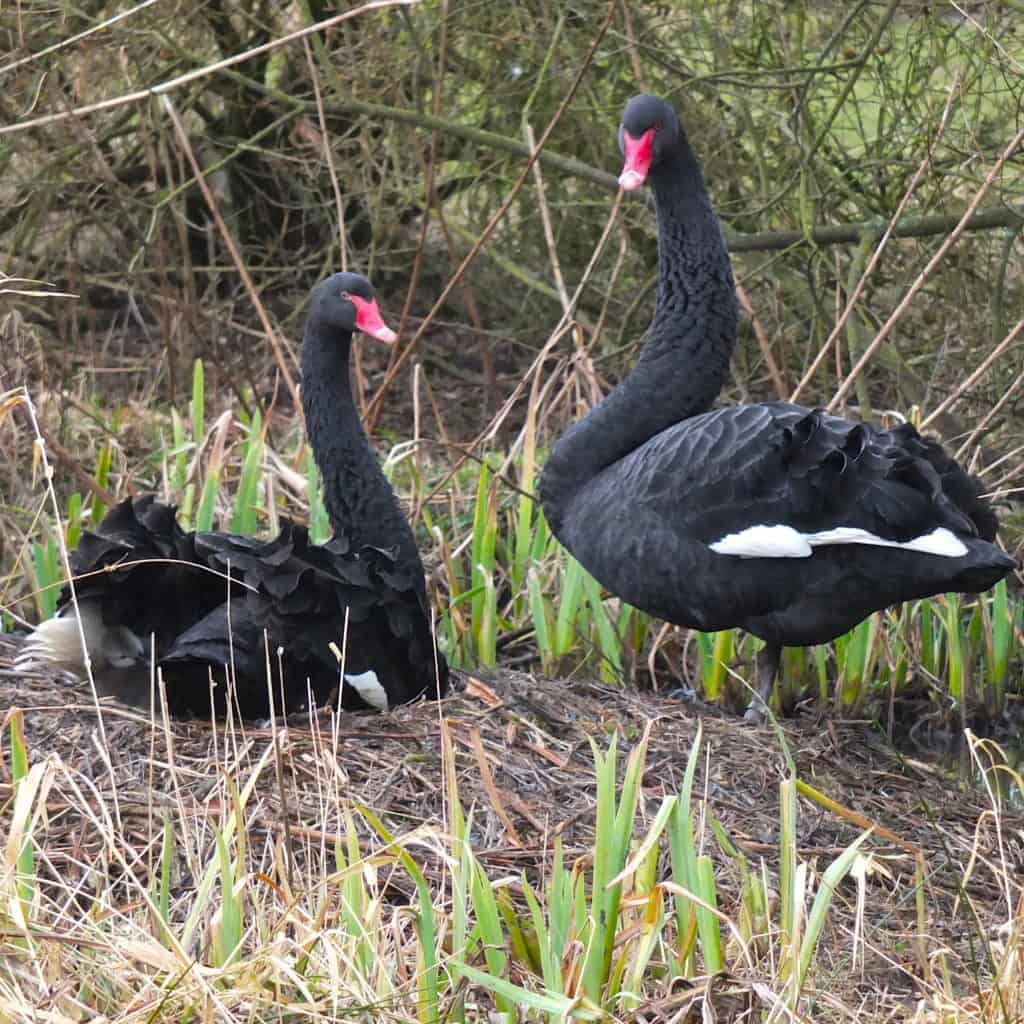Black Swan


Cygnus atratus
Black Swans are prominent in wildfowl collections across the world. Easily recognisable by their black plumage, white flights and bright red bill, the Black Swan has a proportionately longer neck than any other swan. It is a feature that makes it particularly graceful whilst afloat.
The Black Swan has a soft high-pitched bugle that is not very far reaching. It can also whistle, particularly when disturbed from nesting.

These swans are highly gregarious and may assemble in their thousands in Southern Australia and New Zealand. They are comfortable in a wide range of habitats but their preference is brackish and salt water lakes or wetlands.
Black Swans can be mature at 2 years old. They tend to nest in April and September, although some can also have a winter clutch. The female (pen) decides on the best nest site location. Both take part in building the nest, gathering whatever materials are given to them, or in the area. They are excellent parents, so most breeders leave the parents to do all the work.
If cygnets are removed and raised in brooders, swimming is essential so that cygnets do not have leg issues when growing.
Floating waterfowl starter works well, progressing on to grower pellet as soon as they can take it. Once they have access to a natural pond and grounds, they graze a lot.

Black Swans will find a new mate if one dies. If a couple has not reproduced, and a choice is made to introduce a new partner, they should be closely monitored. Males will fight for dominance, to ultimately win over a new mate.
Nesting in the wild tends to occur in wetter periods and can be as an individual pair or nesting in colonies. The swans build large nests in shallow water or on islands, with a typical clutch of 4-8 eggs which take 35-40 days to hatch. They can double clutch, or even triple clutch if the eggs are removed. Both the pen and cob will take part in the incubation process. Research on wild swans found that one in six cygnets are fathered by a different male than the one in their parental pair — they are a socially monogamous species.
FURTHER READING
Harteman, J. Harteman Wildfowl Aviaries Black Swan.
Kaur, P. 2023 Australia’s iconic black swans have a worrying immune system deficiency, new genome study finds. The Conversation.
Kraaijeveld, K, Carew, PJ, Billing, TM, Adcock, GJ & Mulder, RA (2004). Extra-pair paternity does not result in differential sexual selection in the mutually ornamented black swan (Cygnus atratus). Molecular Ecology 13: 1625-1633. Full text